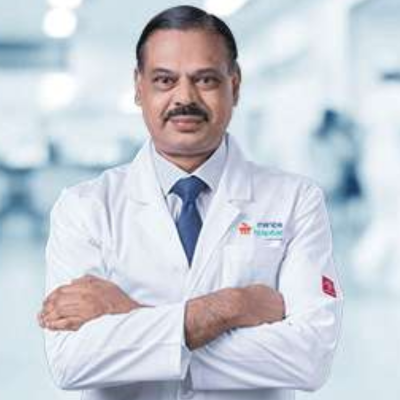Medical Visa Extension in India: How to Apply and What You Need to Know
 27 March,2025
Read More
27 March,2025
Read More
Enquire now in case of any assistance needed
Starting From: USD 4800-7000
Procedure Type: Surgical Procedure
Hospitalization Days: 4-7 Days
Procedure Duration: 3-5 Hrs
Recovery Time: 1-4 Weeks
Success Rate: 98%
Craniotomy is affordable in India. The cost of Craniotomy in India lies between USD 4800-7000. The exact procedure price depends on multiple factors such as the surgeon's experience, type of hospital, severity of the condition, patient's general condition,�etc.
Craniotomy surgery is a critical neurosurgical procedure that involves temporarily removing a part of the skull, known as a bone flap. The surgery relieves pressure on the brain, removes harmful lesions, and restores neurological function.
Some craniotomy procedures use computers and imaging, like MRI or CT scans, to locate the area of the brain that needs treatment. This method may involve attaching a frame to the skull or using special markers on the scalp. When imaging is combined with a craniotomy, it is called a stereotactic craniotomy.
1. Brain Tumor Patients:
A craniotomy is often used to diagnose, remove, or treat brain tumours, including both benign and malignant types.
2. Those with Hematomas or Blood Clots:
Patients with subdural or extradural hematomas, which are blood clots pressing on the brain, may require a craniotomy to relieve pressure.
3. Aneurysm or Vascular Malformation Patients:
Craniotomy can be used to clip or repair aneurysms and address arteriovenous malformations (AVMs) or arteriovenous fistulas (AVFs).
4. Traumatic Brain Injury Victims:
Individuals with severe head injuries causing brain swelling or skull fractures may need a craniotomy to relieve intracranial pressure or repair fractures.
5. Epilepsy Patients:
In some cases, a craniotomy is performed to remove the part of the brain causing seizures.
6. Those with Infections or Abscesses:
Craniotomy can be used to drain brain abscesses or treat infections.
7. Patients Requiring Deep Brain Stimulation (DBS):
Individuals with movement disorders like Parkinson's disease may undergo a craniotomy for the implantation of DBS devices.
8. Skull Base Tumor Patients:
Complex tumors located at the base of the skull may require specialised craniotomy approaches like the orbitozygomatic or extended bifrontal craniotomy.
Always consult a doctor to determine if the surgery and the surgical procedure are the right options for you.
Craniotomy surgery costs in India can broadly be categorised into the following approximate ranges:
These figures generally cover routine craniotomy surgery performed without complications.
Several elements can influence your craniotomy procedure cost in India. The main factors include:
Here is an overview of craniotomy surgery costs in major Indian cities. USD equivalents are approximate and subject to currency fluctuations.
|
City |
Min Cost (INR) |
Max Cost (INR) |
Min Cost (USD) |
Max Cost (USD) |
|
New Delhi |
1,50,000 |
3,00,000 |
1737 |
3474 |
|
Mumbai |
1,60,000 |
4,00,000 |
1853 |
4632 |
|
Bengaluru |
2,00,000 |
6,00,000 |
2316 |
6948 |
|
Chennai |
1,60,000 |
4,00,000 |
1853 |
4632 |
|
Hyderabad |
1,60,000 |
6,00,000 |
1853 |
6948 |
|
Pune |
2,00,000 |
4,00,000 |
2316 |
4632 |
|
Chandigarh |
1,60,000 |
5,00,000 |
1853 |
5790 |
Major metropolitan cities have a wider cost range due to the presence of speciality hospitals. In contrast, Tier-2 cities often provide more affordable options while maintaining quality care. For accurate cost estimates, it's best to consult a healthcare provider.
Medical tourists often compare multiple destinations for the best combination of cost and expertise. Below is a generalised comparison:
|
Country |
Approx. Range (USD) |
|
India |
4,800 - 8,000 |
|
USA |
50,000 - 100,000 |
|
UK |
7,227 - 39,000 |
|
Turkey |
12,000 - 15,000 |
|
Thailand |
16,200 - 25,000 |
|
UAE |
12,000 - 50,000 |
India, for sure, provides a cost-effective balance between affordability and quality healthcare.
In rare instances, re-hospitalization may add to your expenditure. Additionally, there is a slight possibility of complications such as:
These complications may require further medical intervention, which could increase costs.
Most major Indian hospitals accept both domestic and international insurance, significantly reducing craniotomy surgery costs in India. Many health insurance policies include brain surgeries, like craniotomy, under critical illness, typically encompassing hospitalisation expenses, ICU charges, and pre- and post-operative care. It's crucial to verify that your policy explicitly covers brain surgery, as some policies might require a waiting period before coverage begins.
Financing options are available for individuals without complete insurance coverage, making affordable craniotomy surgery in India accessible. Hospitals and financial institutions often provide medical loans with zero-cost EMI plans, enabling patients to manage costs more comfortably. Clearly understanding insurance details and exploring financing opportunities can further ease the financial burden associated with craniotomy surgery in India.
Follow these practical tips to save on your craniotomy surgery costs in India and be worry-free:
These initiatives empower individuals to make well-informed, cost-effective decisions while prioritising their health.
Craniotomy surgery is a critical procedure demanding exceptional precision, skill, and meticulous care. Craniotomy surgery cost in India varies depending on multiple factors, such as hospital location, surgeon expertise, and the complexity of the procedure.
Medijourney understands that planning for brain surgery overseas can seem daunting, which is why we're dedicated to providing complete support throughout your medical journey.
We connect you with leading neurosurgeons and renowned hospitals in India, simplifying the process by managing visa requirements, travel arrangements, accommodations, and hospital logistics. Our end-to-end assistance ensures a smooth, worry-free experience, allowing patients to concentrate fully on their recovery. With Medijourney, patients and families can approach brain surgery with confidence and peace of mind.
Make us your partner in this critical phase, and get premium care at affordable prices. Contact us today!
Magnetic Resonance Imaging (MRI) and Computed Tomography (CT) scans are commonly used both before and during a craniotomy to guide the surgical approach and enhance precision.
Postoperative care typically includes monitoring in the intensive care unit (ICU), managing pain, preventing infection, and gradually resuming activities under medical supervision.
Yes, in certain cases, an awake craniotomy is performed, especially when the tumor is near areas controlling essential functions like speech or movement. Keeping the patient conscious allows surgeons to monitor and preserve these critical functions during the procedure.
Head of Department (HOD)
Neurologist
Manipal Hospital, Dwarka, Delhi
Book AppointmentConsultant
Neurologist
Manipal Hospital Formerly Columbia Asia, Palam Vihar, Gurgaon
Book AppointmentHead of Department (HOD)
Neurologist
Manipal Hospital, Dwarka, Delhi
Book AppointmentHead of Department (HOD)
Neurologist
Manipal Hospital, Dwarka, Delhi
Book AppointmentConsultant
Neurologist
Manipal Hospital Formerly Columbia Asia, Palam Vihar, Gurgaon
Book AppointmentHead of Department (HOD)
Neurologist
Manipal Hospital, Dwarka, Delhi
Book AppointmentDoctor of Pharmacy
Dr. Deepanshu Siwach is a skilled clinical pharmacist with a Doctor of Pharmacy degree.?He has 4+?years of experience and has worked with thousands of patients. He has been associated with some of the top hospitals, such as Artemis Gurgaon.
Dr. Deepanshu Siwach is a skilled clinical pharmacist with a Doctor of Pharmacy degree.?He has 4+?years of experience and has worked with thousands of patients. He has been associated with some of the top hospitals, such as Artemis Gurgaon....
Head of Department (HOD)
Neurosurgeon
Dr. Anil is a highly experienced Neuro and Spine Surgeon. He has 29+ years of experience and has successfully performed over 10,000 neurosurgical procedures. His expertise lies in Percutaneous Discectomy, Nucleoplasty training, and Minimal Access Spine Su...
The Art of Effective Communication
 27 March,2025
Read More
27 March,2025
Read More
 26 March,2025
Read More
26 March,2025
Read More
 22 March,2025
Read More
22 March,2025
Read More
 12 March,2025
Read More
12 March,2025
Read More
 24 January,2025
Read More
24 January,2025
Read More
 20 January,2025
Read More
20 January,2025
Read More


